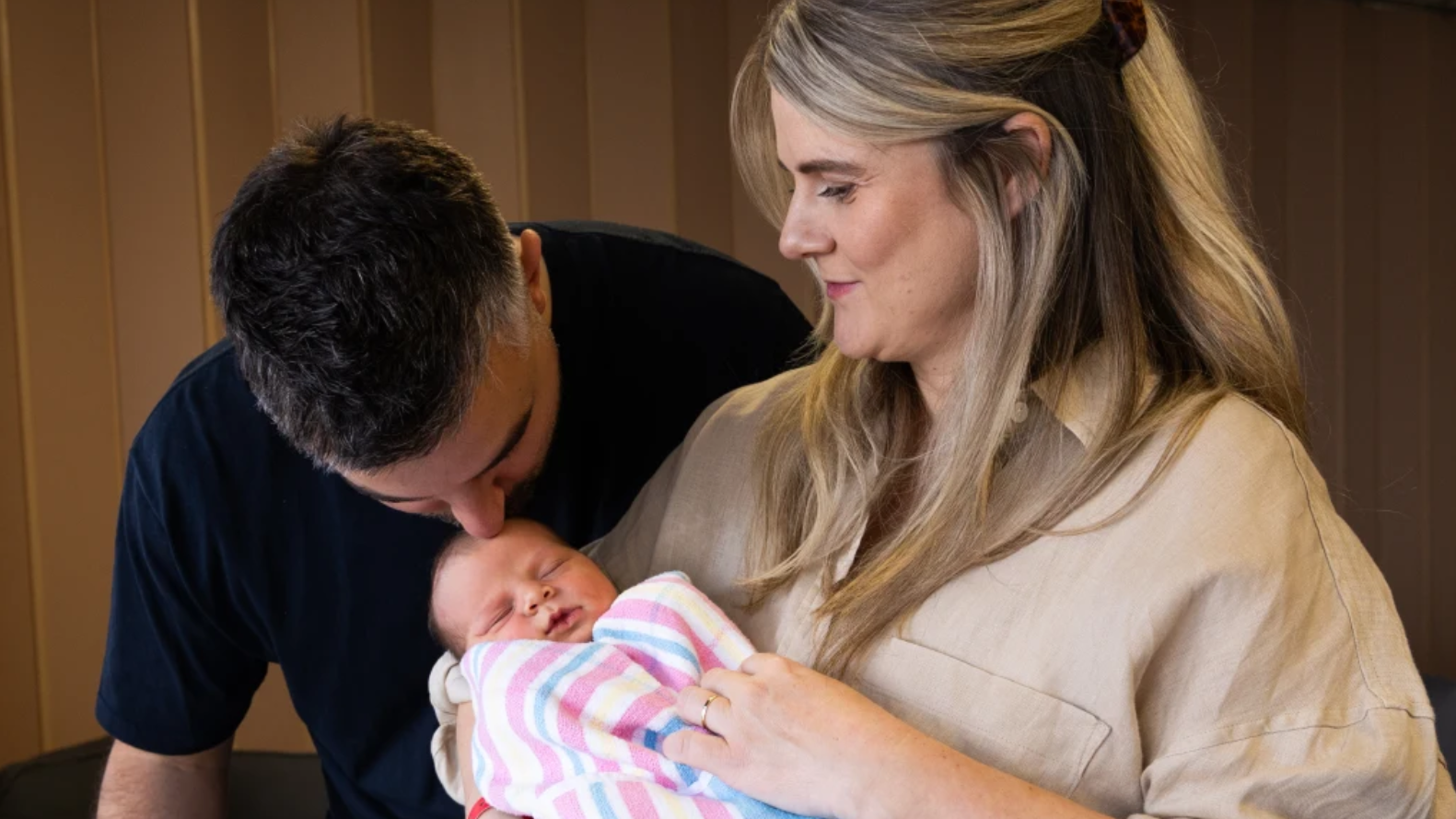UNSW Sydney and the Royal Hospital for Women are celebrating an Australian first, following the arrival of baby Bonnie Loutas, who was conceived via a new clinical procedure to treat infertility.
After Leanna and Theo Loutas struggled for two years to fall pregnant, trying various treatment methods including a round of in-vitro fertilisation (IVF), Leanna was offered CAPA-IVM (Capacitation in-vitro maturation).
This new treatment involves retrieving eggs at an immature stage and bringing them to maturity in cell culture, eliminating the need for the patient to undergo two weeks of hormone injections.
It was the research of Professor Robert Gilchrist from UNSW Medicine & Health, in partnership with researchers from Brussels and Saigon, that led to the development of CAPA-IVM.
“Many years of blood, sweat and tears have gone into this. Countless hours of research over two decades, so this is a very proud moment,” Professor Gilchrist told UNSW Newsroom.
“To be able to take a discovery from the lab into a clinic and make a real difference for Leanna on her fertility journey and other women who will follow is very special.”
Professor Bill Ledger from UNSW Medicine & Health, who is The Royal’s head of Obstetrics and Gynaecology, said that baby Bonnie’s arrival is particularly special.
“We’ve all been looking forward to seeing this baby come into the world. The Royal Hospital for Women is one of only six locations in the world to offer CAPA-IVM and this is the first baby conceived here in Australia through this method,” Professor Ledger said.
“While this is a special time for Leanna and Theo as they enter the journey of parenthood, it’s a big moment for everyone involved, as we close the loop from research to the arrival of a baby.”
While standard IVM has been a treatment option for many years outside Australia, and currently in Perth, CAPA-IVM is considered a step forward because it uses a new technique and pregnancy rates per cycle are higher.
For Leanna, Bonnie’s birth is a Christmas miracle.
“We feel hugely privileged and grateful to have been given this opportunity. Hopefully we’re the first of many to come and when other people hear about our story it will give them encouragement,” she said.
Source: UNSW Newsroom.
